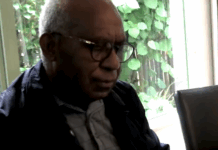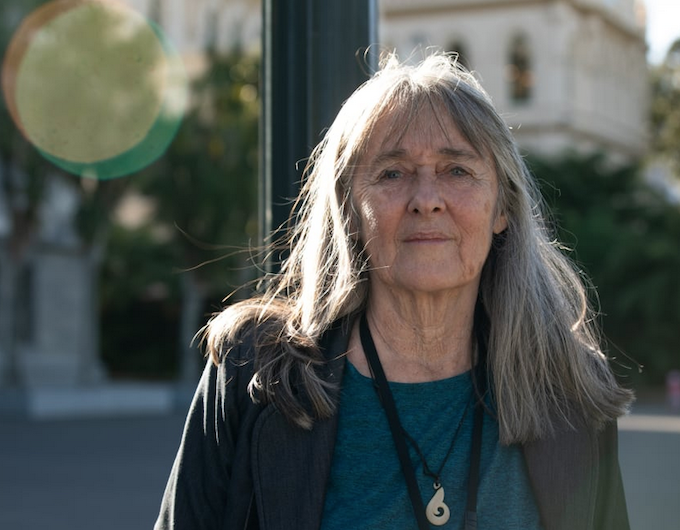
THE HOUSE: By Johnny Blades, journalist
If elected representatives have their work cut out for them to create the slightest social or political change through Parliament, spare a thought for activists.
For the committed activist, in it for the long term, their work brings them inevitably to engage with the parliament system.
Protesting at Parliament, demonstrating, submitting to select committees, sending in petitions, or just being there to watch, activists are an important, if sometimes misunderstood, part of the system.
And we’re not talking about the agitators who talk about “hanging MPs”.
The House offers a look at four activists who have long participated in the Parliament space — from single or multiple issue campaigners to the lifelong activist who became an MP and got out the other side alive:
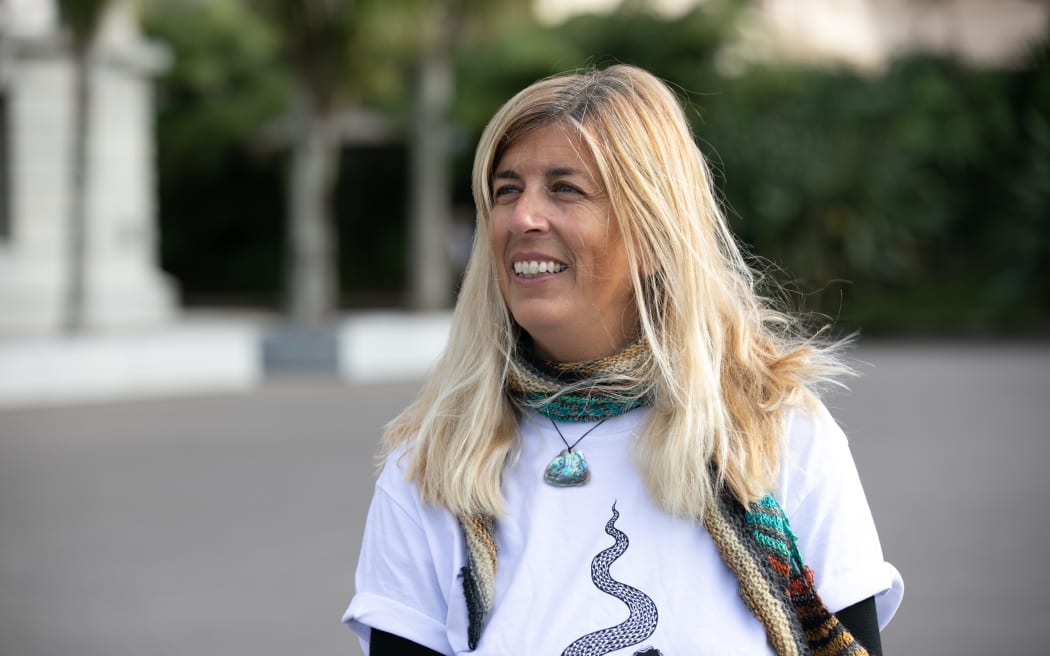
Valerie Morse is a well established activist who has organised many campaigns in anti-war and climate justice spaces among others. Over the past 20 years, she’s been part of hundreds of protests to Parliament, and has made “dozens and dozens of submissions on everything from the environment to defence to the SIS to local body matters, everything under the sun”.
In order to get MPs to listen, Morse has sometimes used theatre in her activism. Some of the highlights include a naked protest on the forecourt in support of the genetic engineering moratorium, and entering a select committee hearing on Security Intelligence Service legislation with a group who blew loud whistles to highlight the importance of whistle-blowing — to the dismay of the MPs.
There have been setbacks. In 2008, during an event to commemorate Vietnam War veterans, Morse attempted to enter Parliament with an A3-sized sign about then-prime minister Helen Clark and former foreign affairs minister Phil Goff’s anti-war activism during the Vietnam War being at odds with their subsequent support for the war in Afghanistan:
“Parliamentary security stopped me from coming to the grounds, and trespassed me from Parliament for two years,” Morse explained.
“Subsequently I challenged that by coming on to Parliament grounds at a protest around slashed funding for adult and community education in the John Key era. I came on to Parliament grounds with thousands of other people and was arrested by parliamentary security. I had to go all the way through the court system, and eventually, the speaker of the house at the time, Lockwood Smith, actually withdrew the trespass.”
There have been some wins too, such as when large protests against the Iraq war 20 years ago helped convince New Zealand’s government to not join it, as well as the work of Morse and others at the committee level to leverage some transparency from the intelligence services amidst heightened public interest in mass surveillance.
“Those processes are often very difficult to see very meaningful change in during the short term. Over the longer term, there’s been changes in the way those agencies operate, so there has been some greater openness.
“But particularly around submissions, unless you’re speaking to some very, very specific item that they (MPs) think is perhaps a mistake or a drafting error, they’re often hardened down party lines, so it can be really hard to make changes in that process.”
The Messenger
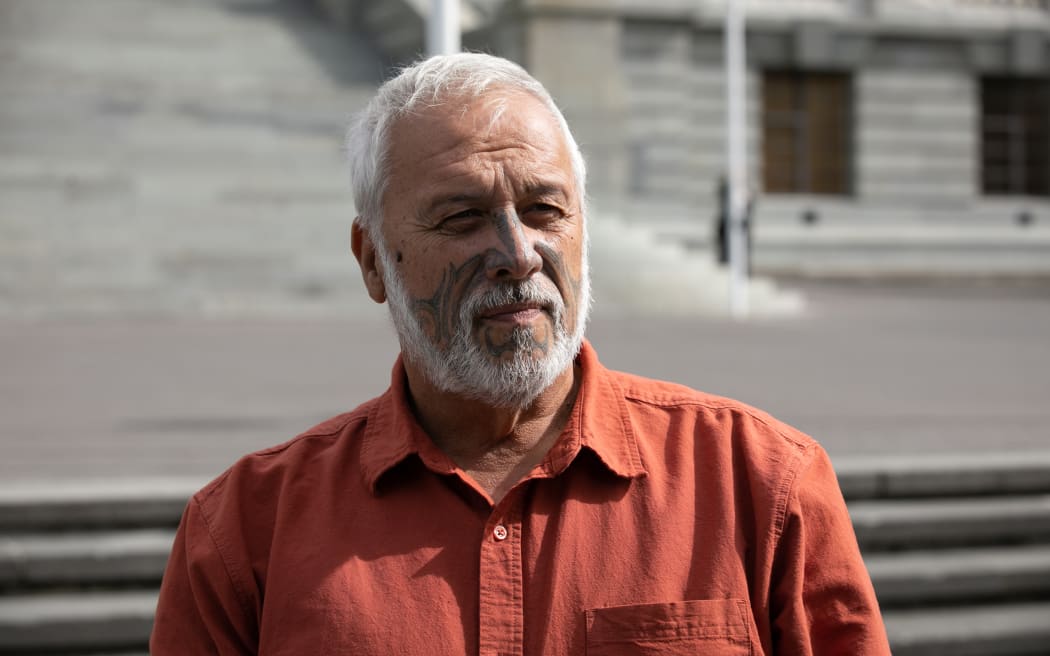
To convey a message of activism means to demonstrate it, according to Mike Smith, a leading figure in numerous environmental campaigns. Smith’s activism has encompassed “all manner of things” and he has proven effective at getting his message noticed. Almost three decades ago he took a chainsaw to the great pine on One Tree Hill, or Maungakiekie, to raise attention to Māori rights and shortcomings in the Treaty Settlement process.
In recent times, Smith (Ngā Puhi and Ngāti Kuri) has been absorbed in legal action against major fossil fuel users and suppliers over their polluting activities. But as we sat by the statue of Richard Seddon on Parliament’s forecourt, Smith took stock of his various forays to Parliament, from protests to petitions. He recalled the Foreshore and Seabed hikoi, mobilisations over asset sales as well as protests related to the Treaty — occasions on which he has delivered a message to Parliament.
“I think it was here that we presented the petition to stop deep sea oil drilling after a ten-year campaign. The prime minister came out and greeted us. We handed her a petition to halt deep sea oil drilling. She went back to her office, and within about two weeks the announcement came through that the government had indeed decided to put a moratorium on issuing new exploration permits,” he recalled.
“I think politics and indeed the law should reflect the morality or mood of the society at any particular time. However there will be powerful voices and vested interests that pull against popular opinion. It’s important that there are opportunities for the public to express themselves.
“The word ’demonstration’ sort of sums it up. We’ve got to demonstrate what that feeling is amongst the public.”
The activist from the far north said Parliament should be receptive to the expression of widespread public sentiment, and that it is up to the public to hold politicians’ feet to the fire if they are not responding constructively, or conversely if they are being accountable, to reward them at the polls.
“Anybody can arrange a meeting with ministers and they may or may not be listened to or heard, but there’s something far more powerful about an expression of a substantive section of society. I’ve been on marches where 50, 60,000 people have mobilised in Auckland or Wellington particularly on climate issues or (issues) about mining on conservation land. I know that the politicians, when they see that amount of people, they really do take notice of that.”
The Outsider Insider
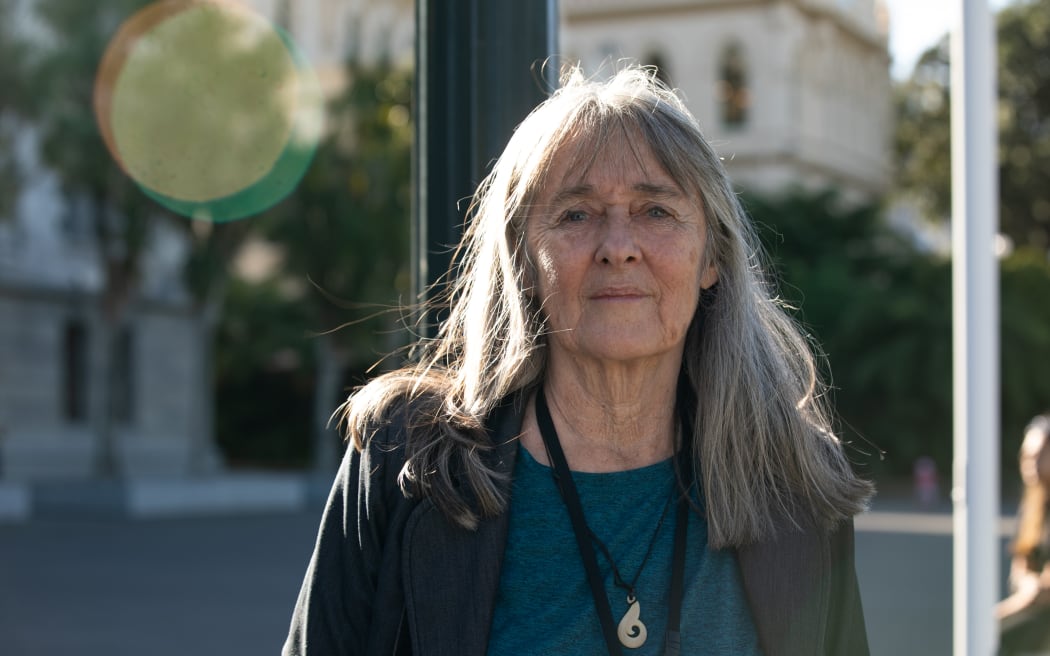
Catherine Delahunty isn’t the only activist to have been a member of Parliament, but perhaps what marks her out is the seamlessness with which she has resumed her activism and maintained a critical voice to power forged during her three-term stint, which ended in 2017. If there was any motivation to enter Parliament, she said it was to advance various kaupapa of her many years of activism.
“There were some issues I’d been involved in over many years that I wanted to see if I could advance. For example, the sawmill workers who were poisoned in the Bay of Plenty to whom I’m still deeply connected to and (on their behalf) lobbying ACC for change. I thought well, if I can get into Parliament, maybe I can make some change. And I did actually manage to get the National government to set up a national register of toxic sites and things like that,” the former Green Party MP explained.
In a sense, Delahunty never ceased being an activist when she came to Parliament. She used her wide range of connections with interlocutors from grassroots communities to media to civil society and political leaders in order to advance causes such as sustainable forestry, opposition to mining on conservation land, highlighting human rights abuses and the West Papuan struggle for independence.
“I started by protest. Been on many, many protests here in my life. In fact when I was an MP I probably went to more protests, because you’d see them out the window so you’d just go out to join them,” she explained.
“What you find out of course when you get here is: yes, you can make a difference, and no, you can’t. So if there was any conclusion I came to as an activist after leaving Parliament it’s that we need constitutional transformation of this country based on Te Tiriti (o Waitangi) and He Whakaputanga. But having said that, I still engage with select committees and I still engage with the system to get small things done. But I’m not under any illusion that we’re changing the world.”
“I always felt the system was rotten, but actually when you’ve been inside it you do have more knowledge and more contact. So it’s easier for me to walk in the door here now and have a chat with somebody that I wouldn’t have known before. Whether I can have an impact is another matter, but the first thing is to get through the door.”
When asked about the difference between activists and lobbyists, Delahunty said “we don’t have a PR firm who work for us to massage our messages, we are activists who will take our truth to power. And I don’t think lobbying is necessarily about taking truth to power. It’s about vested interests that pay for their interests to be privileged inside the power system. That’s very different from activists challenging the power system to actually do something in the name of justice.”
The ‘Gallery Stalker’
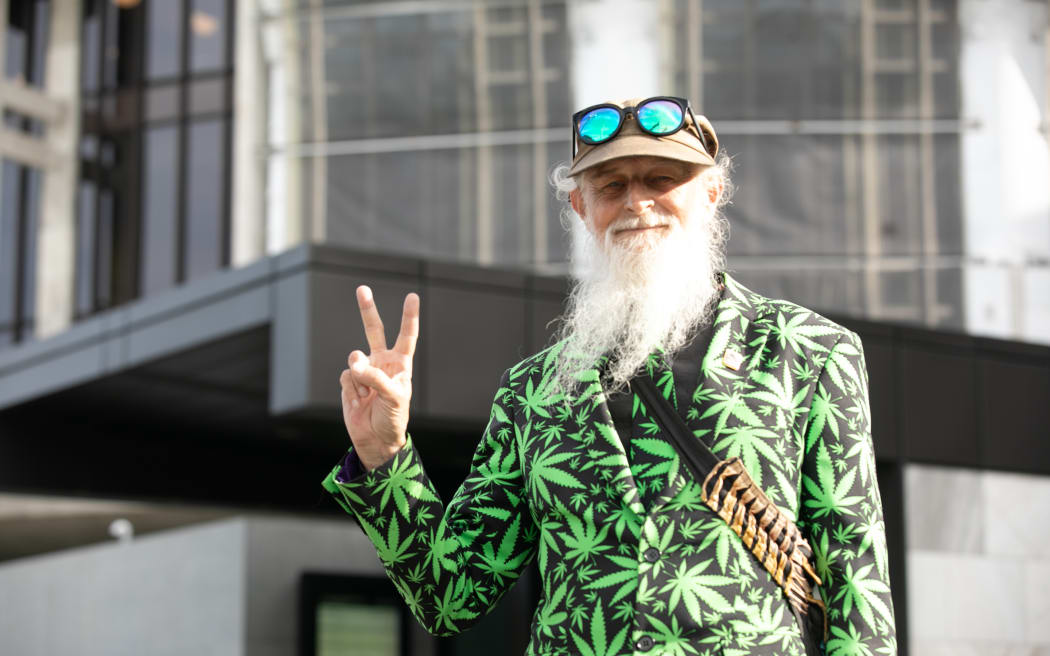
Gary Chiles was only 13 years old when the Misuse of Drugs Act was passed in 1975, and it remains a bugbear for him that it’s still law 50 years later and that people are being criminalised for cannabis use or association with it. Drug law reform is Chile’s singular focus when it comes to his long running activism at Parliament.
Another regular protester outside Parliament during the Key years, Chiles decided to start going to the House to soak up the action inside the chamber. He made it his mission to attend each Question Time — around 90 days in a typical sitting year.
“It was all a bit of an eye opener. But I decided that I needed to know how things worked inside Parliament if I wanted to make change happen,” he explained.
“You’re not allowed to wave signs or wear sloganed t-shirts and things in parliament. But I found out the dress code allowed me to get in there if I have a suit on, so I bought a cannabis suit.”
Chiles stands out clearly in his dark suit emblazoned with bright green cannabis leaves, worn each time he attends Question Time. There he sits up in the public gallery, on one side or another, moving around to stay visible to MPs across the divide. A silent, persistent reminder of the need for drug reform.
“I think of myself as being the gallery stalker. They all know I’m there whether they’re engaging with me or not, and they all know what I’m about because of what I’m wearing. And it’s about reminding them (about the need for drug reform). What are you going to do about it? Do we have to wait another 50 years, what’s going on?”
Attending Parliament has given Chiles a greater appreciation for the work of the various parts of the system. He said that it has also humanised MPs for him, and that what goes on in parliament is often quite different to what is portrayed in the news media. Getting angry at the news isn’t political engagement, he pointed out, adding that the access the public has to this country’s Parliament is something unique and to be treasured.
“My whole attitude to Parliament changed the day that there was a person who set themselves on fire on the forecourt, and the first people on the scene to try and deal with that were Parliament security. That made me reappraise my attitude to them, because they walk the fine line every day between allowing public access and maintaining security, and I think they do a really good job of it.”
Short-term thinking
The four activists all point to short-term thinking — the focus on retaining power in a quick electoral cycle — as something holding Parliament back from enabling systemic change. On the other hand, their own work to transform these views and inject a public voice into the deliberations of the lawmakers is very much long-term.








